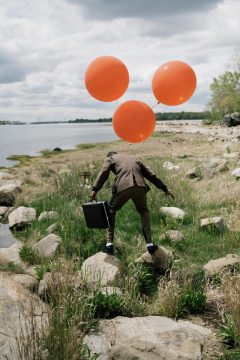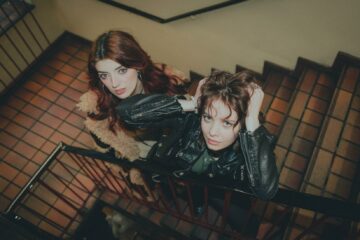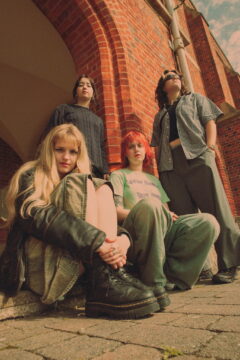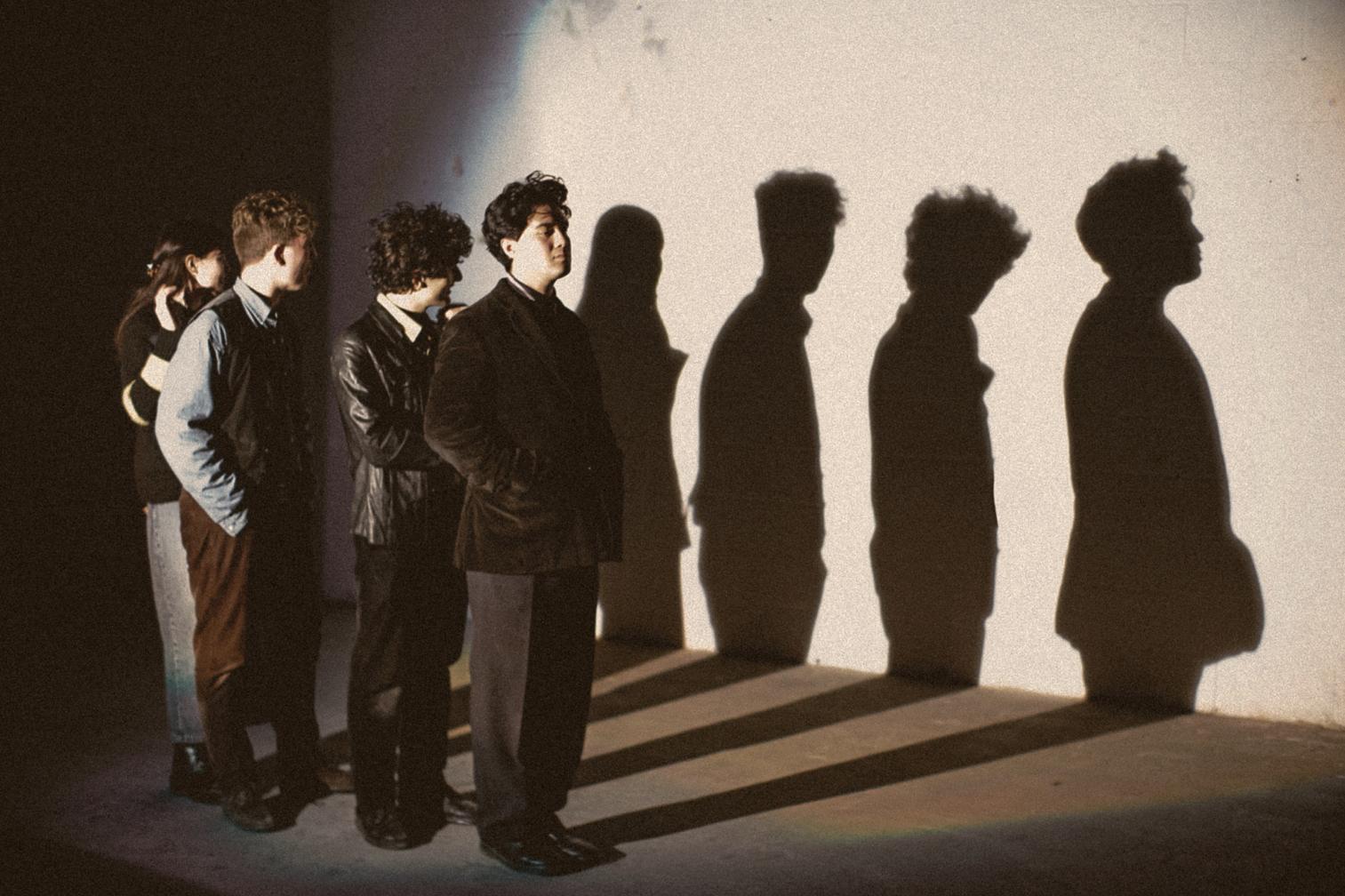
Formed on a bond over poetry and pints, Cardiff upstarts Slate intend to write their own stanza in the book of their country’s rich lineage of storytellers.
Their debut EP, Deathless, sees the four-piece shape an unignorable signature sound, one that swirls in the darkness somewhere between post-punk and post-rock. Produced by long-time collaborator in Buzzard Buzzard Buzzard’s Tom Rees, the band’s first bonafide document of expression alchemises their primal poetry with a gothic guitar-driven psychedelia, in a raw musical force that’s discernibly linked to their cultural heritage, yet screams agonisingly into the void of the misty Welsh moors.
Ambitious torch-bearers for Cardiff’s rapidly emerging music scene, Slate’s live performances have already caught the attention of audiences as far as London and beyond, as they prepare to inaugurate Deathless at showcase festival The Great Escape on its release day.
Embracing influence from The Doors to Slint and Sonic Youth to New Order, recognising when to capture lightning in a bottle, learning to be delicate, and facing their cultural duality, Slate’s singer Jack Shepherd and bassist Lauren Edwards discussed the inner machinations of Deathless with whynow.
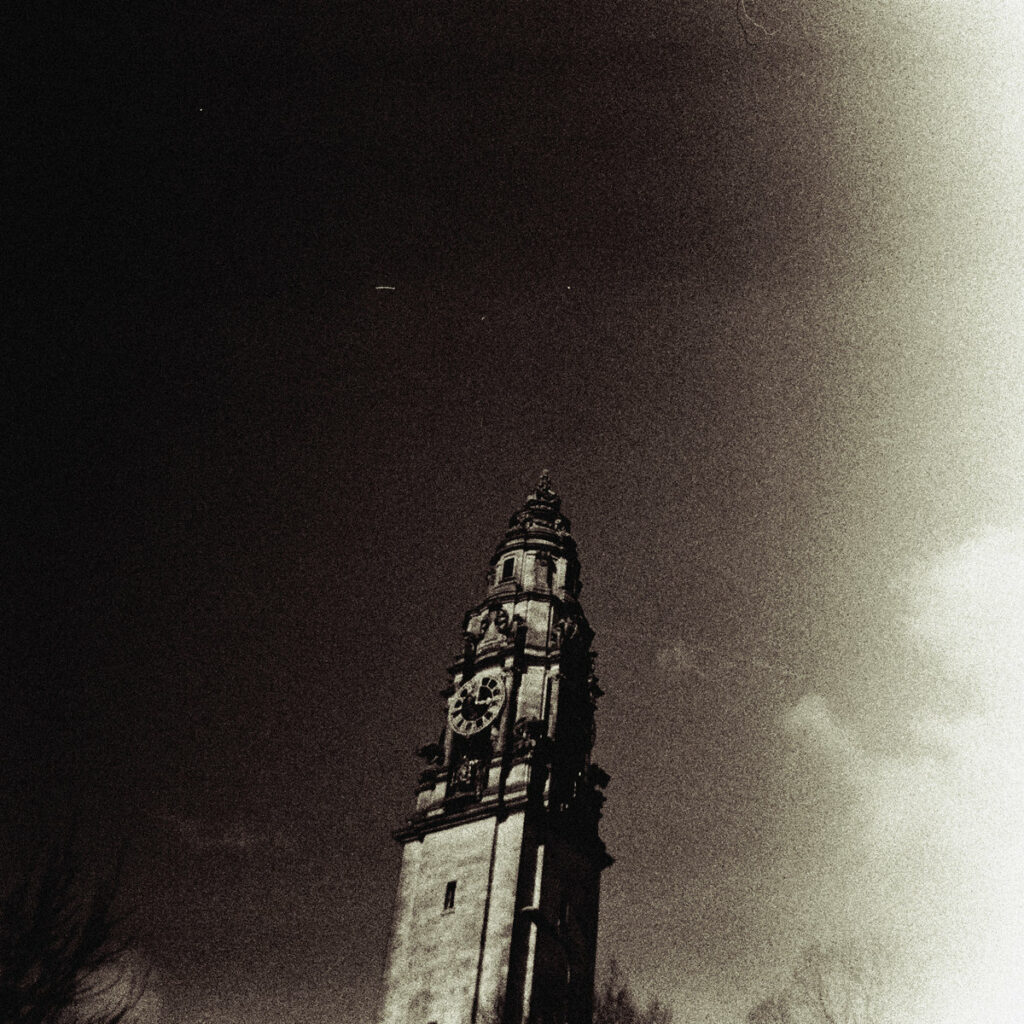
‘Remoter Heaven’
Jack: “We’ve tried to write a better song than ‘Remoter Heaven’ for the last two years [haha]. This was the first song we ever wrote as a band, two months after our first rehearsal with Lauren and [guitarist Elis] Penri joined. It’s one of those songs that don’t come around very often. We were loosely noodling around the chord of D, and Lauren started playing the bassline you heard at the beginning. Naturally, because there was an element of caution, we were all navigating the song in real time, and we ended up building this eight-minute track. We just kept taking it up a level and another level until it climaxed. We recorded it only the third time we played it, which is still very similar to the recent release. It felt right to trust that earlier recording because it was so natural.”
Lauren: “We were all very conscious that we wanted to keep it faithful to its initial conception rather than refining or changing it. That song is a moment.”
Jack: “It was written quite a while before the rest of the EP. There wasn’t a conscious effort with the lyrics or how it sounds, to the extent that I didn’t know where it fits with the rest of our catalogue when we started gigging. If anything, we’ve written songs to bridge the gap with ‘Remoter Heaven’. It was entirely instinctive. Penri was playing around with The Doors’ ‘Indian Summer’; similarly, it’s in D and sprung from that. Raychi, on the drums, reworked the beat from Slint’s ‘Good Morning, Captain’, so there were references that fed into this idea.”
Lauren: “I hadn’t been playing bass for very long at all, didn’t know what I was doing, and was drawing a lot of influence from Peter Hook. More melodic things, as I’m a trained classical guitarist, so I approached the bass with that mindset. I think that’s where the chordal aspect of the bass comes from, just massively ripping off Peter Hook.”
‘The Heir’
Jack: “‘The Heir’ was a song I wrote in isolation before bringing it to the rest of the band, written on the piano. It’s probably the darkest thing we’ve created. Lauren added this interweaving bassline with the guitar by bringing it to practice. It’s a lot harder hitting. It was a lyrical idea of ‘the heir’ being whatever comes next. Day-to-day, what we decide to do next and who we decide to become. The idea of having to constantly decide what to do next, how to soldier on, and who will confront that.”
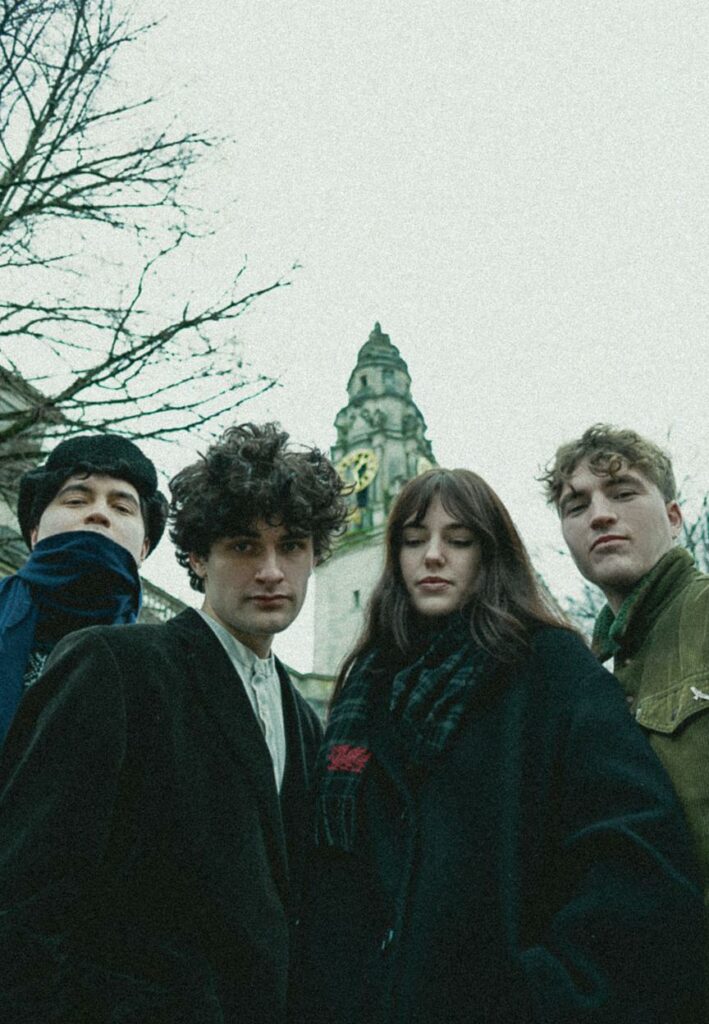
‘Sun Violence’
Lauren: “The concept of the EP, being this idea of’ a day in the life,’ was something we had early on. It was Ray’s idea initially, as he wanted something more conceptual. The cover of the EP, the image of the clock tower in Cardiff—a photo which Jack took a while ago—was in the back of our heads, and it just evolved from there—from our collective consciousness—the ‘hive mind’.”
Jack: “The first three tracks on the EP were pieces of the puzzle we saw fitted together much later on, rather than reactions to what we wrote first. With ‘Sun Violence’, Penri and I wrote together. It has a similar anxiety and hostility to ‘The Heir’, so they complement each other. It wasn’t a conscious decision, but the way ‘The Heir’ finishes with the snare roll and how ‘Sun Violence’ starts with the tom hits, they felt like one continuous musical piece.”
‘Deathless’
Jack: “We wanted to bleed out of the distortion, absurdity, and chaos of ‘Sun Violence’, so we wrote this wall of noise piece. We’re huge fans of Sonic Youth and My Bloody Valentine, so we wanted that intense section. We tried a few poems over it and different bits of writing. It took a while to decide to call it ‘Deathless’, though. I thought it was interesting to have the EP titled after an eight-line poem that’s not even a song.”
Lauren: “One thing about Deathless is that throughout the EP, there’s an idea of shade and light. It manifests in ‘Deathless’, switching between the dread and chaos of the start into this beautiful part, which Jack sings with incredible sensitivity.”
Jack: “It’s a turning point, from all the darkness into a lighter place.”
‘Shade In Me’
Jack: “It’s more organic for us to write darker, intense music. ‘Shade In Me’ was a shift in terms of our songwriting. There was still gravity to our music despite it being more delicate. I guess it’s just how it goes in a band. You figure out your niche, your strengths, and what you are. Then, you can implement that with different kinds of songs. ‘Shade In Me’ is like that. We tend to lean into that brooding intensity when we think about playing live and writing energetic songs. For the EP, we broadened it. We could relax into it, and what else we’d like to write. Subconsciously, we are writing to paint landscapes we’re familiar with, whether it’s Cardiff’s industrial grind or Wales’s beautiful scenic surrounds. I think we inhabit all of that.”
‘Hailstone’
Lauren: “‘Hailstone’ was the last song on the EP that we finished and that we all were happy with. It was definitely more of a labour of love, whereas the earlier tracks were led by instinct.”
Jack: “Including the piano [on ‘Hailstone’] shows us what we’re about a bit. The first two singles [‘Tabernacl’ and ‘St Agatha’] were far more propulsive. The EP has helped broaden our horizons, but whether it’s a sign of things to come, who knows? To continue what Lauren said about light and shade, what I’ve taken away from the process personally is that we find our best music combatting an idea that’s really intense with an idea that’s very delicate. Using our voices softly and progressing into something monstrous.”
Keep up to date with the best in UK music by following us on Instagram: @whynowworld and on Twitter/X: @whynowworld

